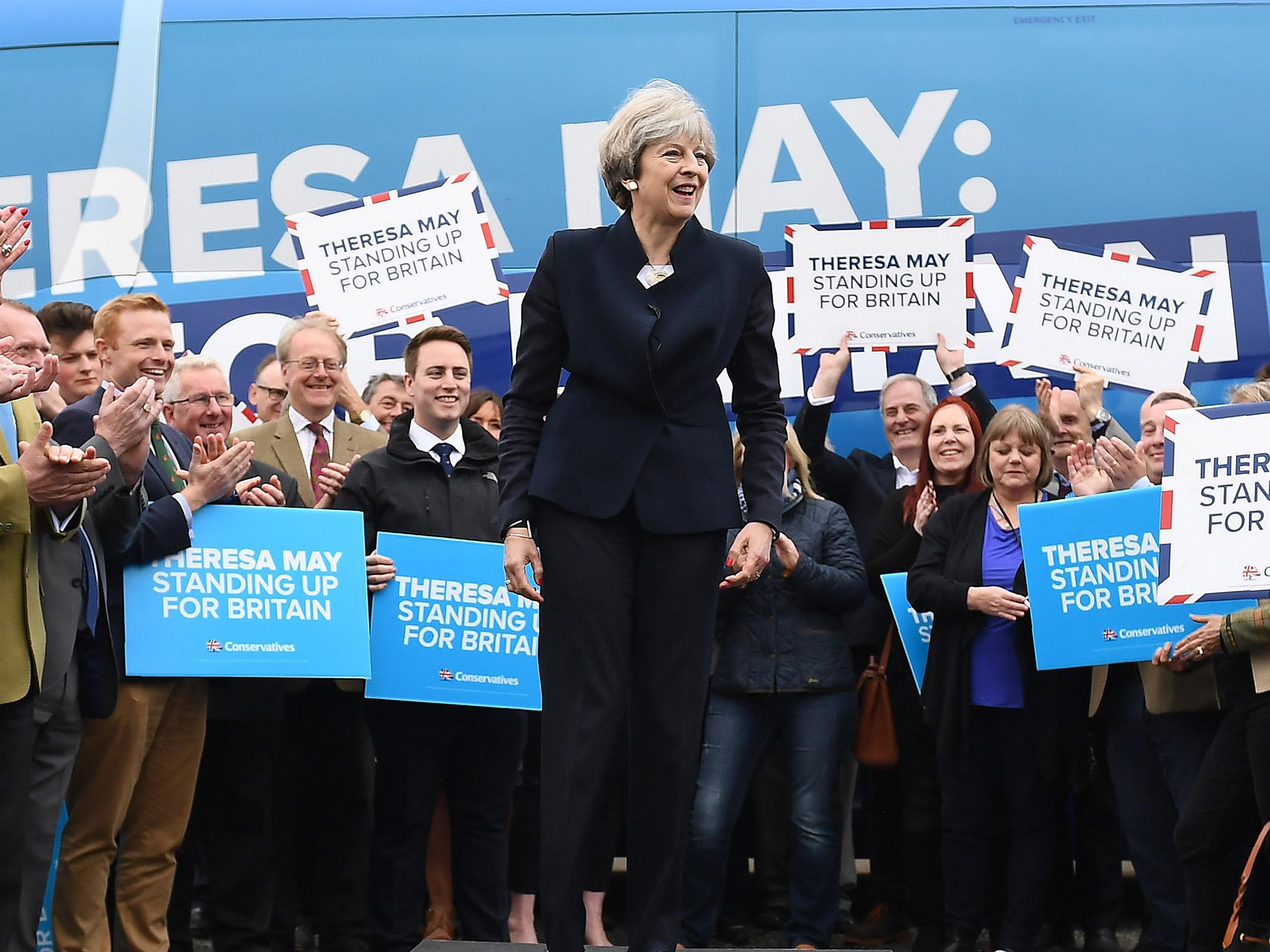Theresa May is already dominating the right of British politics. Now she's coming for the centre ground too
It is already clear that the Prime Minister will deploy one of the oldest tricks in the political book: stealing your opponent’s clothes

Your support helps us to tell the story
From reproductive rights to climate change to Big Tech, The Independent is on the ground when the story is developing. Whether it's investigating the financials of Elon Musk's pro-Trump PAC or producing our latest documentary, 'The A Word', which shines a light on the American women fighting for reproductive rights, we know how important it is to parse out the facts from the messaging.
At such a critical moment in US history, we need reporters on the ground. Your donation allows us to keep sending journalists to speak to both sides of the story.
The Independent is trusted by Americans across the entire political spectrum. And unlike many other quality news outlets, we choose not to lock Americans out of our reporting and analysis with paywalls. We believe quality journalism should be available to everyone, paid for by those who can afford it.
Your support makes all the difference.When she entered Downing Street last July, Theresa May made “just about managing” families her top priority as she tried to draw a line under the Cameron era. But she has been slow to spell out specific policies for the “ordinary working families” she champions.
So the Prime Minister knows she must turn her rhetoric into reality when she unveils the Conservative Party manifesto this week. It is already clear that she will deploy one of the oldest tricks in the political book – stealing some of your opponent’s clothes.
The Tories have set out plans to allow the regulator Ofgem to cap energy prices for customers on standard variable tariffs. It is very similar to the energy price freeze proposed by Ed Miliband at the 2015 election, and denounced as “Marxist” by David Cameron.
Now the Tories, having long had a blind spot about housing in general and social housing in particular, have announced plans for a new generation of council homes to help "Generation Rent". The move is long overdue, with affordable house building at a 24-year low and 1.2 million families on local authority waiting lists. Labour has pledged to build a million homes over five years, with at least half provided by councils or housing associations.
The Tory plan invades Labour territory while nodding to Margaret Thatcher; some of the new public housing will be offered to tenants after 10 to 15 years under the Right to Buy scheme. There is no new money, and the Tories are unable to say how many homes will be built over what period. Labour would be pilloried for announcing such a flimsy plan. But the Tories’ belated conversion to the merits of council housing is to be welcomed.
It is also clever politics by Ms May. She is often accused by Labour of pandering to the right on issues like Brexit and immigration to kill off Ukip. That is only half the story; she also aims to dominate the centre ground, a task made easier by Labour’s veer to the left under Jeremy Corbyn.
A key test for the Tory manifesto will be whether it goes further than energy prices and council housing by outlining other proposals for state intervention. Last October, Ms May's speech to the Tory conference was headlined “the good that government can do”. The man drafting the party’s manifesto, her joint chief of staff Nick Timothy, is a believer in active government and intervening in failing markets. So Ms May could win a mandate for a different kind of Toryism.
Some people in her own party are unhappy about her view on the role of the state, regarding it as unconservative. They want her to stick to the true path of Thatcherism rather than follow Mr Corbyn off to the left. Such criticism from the right may do the Prime Minister no harm as she seeks to extend her party’s appeal to working class voters and in the North and Midlands. Traditional Tories may have nowhere else to go; Ukip’s mission is accomplished and the party is standing in only 377 of the 650 constituencies.
Of course, some voters will regard Ms May’s venture into the centre ground as an election gimmick, fearing that the same old Tories would soon reassert themselves. They will prefer the much bigger role for the state offered by Mr Corbyn, including ownership of rail, the Royal Mail and parts of the energy sector. While these measures might be popular in themselves, the opinion polls also show that Labour has a huge credibility problem. The worry for Labour is that, in contrast, many voters seem prepared to give Ms May the benefit of the doubt.
Join our commenting forum
Join thought-provoking conversations, follow other Independent readers and see their replies
Comments